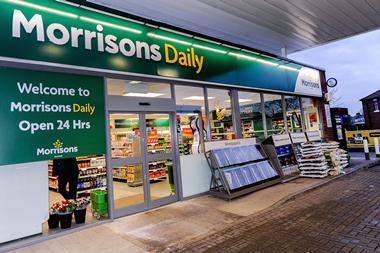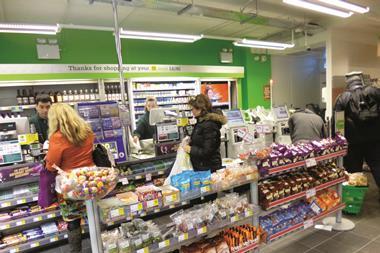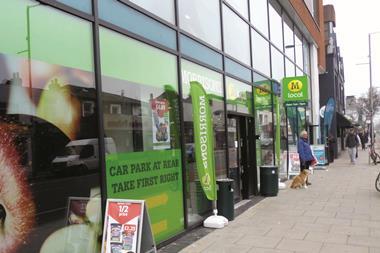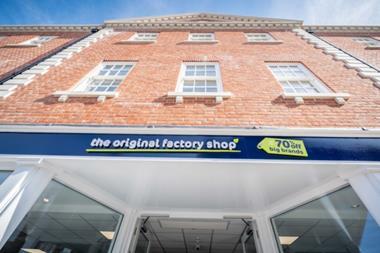Morrisons’ likely disposal of its M Local convenience chain looks odd at face value but makes sense in the context of the grocer’s wider business.
Morrisons’ likely disposal of its M Local convenience chain looks odd at face value.
Convenience is a fast-growing retail sector, forecast by industry body IGD to be worth £49bn by 2019 – a rise of 30% over five years.
Morrisons was a late entrant to the party.
Its former management saw the launch of M Local, along with the development of an online offer, as addressing a strategic weakness as the grocery landscape shifted.
Now, just four years after the first branch opened, Morrisons’ c-stores look destined to pass into the ownership of investor Greybull, best known for its rescue of embattled airline Monarch last year.
Despite the rise of convenience shopping, it would make sense for Morrisons to direct its energies elsewhere. Among the big four the retailer has been one of the worst hit by grocery market turmoil.
Underlying profits halved last year, and a £1.3bn property writedown pushed it into loss.
New boss David Potts was parachuted in to execute a turnaround and is focusing on restoring the fortunes of the core business.
Recalling the root-and-branch action he had to take in order to rescue Asda, Archie Norman once recalled: “We had to sell all the forward pipeline of stores… we sold our growth because we needed the money.”
Morrisons is not in the predicament that Asda was back then, but in its present circumstances a poorly performing convenience business is little more than a distraction.
At the time of the results in March Morrisons signalled that its foray into convenience was not faring well. It revealed that 23 M Locals would be shut and openings slowed. High property costs, some poor locations and indifferent execution all played a part.
The potential disposal of the convenience business is likely to promote speculation about whether Morrisons’ tie-up with Ocado might also be reviewed.
That seems unlikely, despite the cost of the 25-year deal.
In its first year of operation it generated £200m of annualised sales – the c-stores generated £300m or so last year – and perhaps, as Asda has done, Morrisons can offer greater convenience through its online offer rather than shops.
But the most important thing Potts can do is restore the pull of Morrisons’ fundamental business, its supermarkets.
Without success there, a tiddler of a c-store division and a fledgling ecommerce venture won’t amount to a vertically integrated hill of beans.
























No comments yet